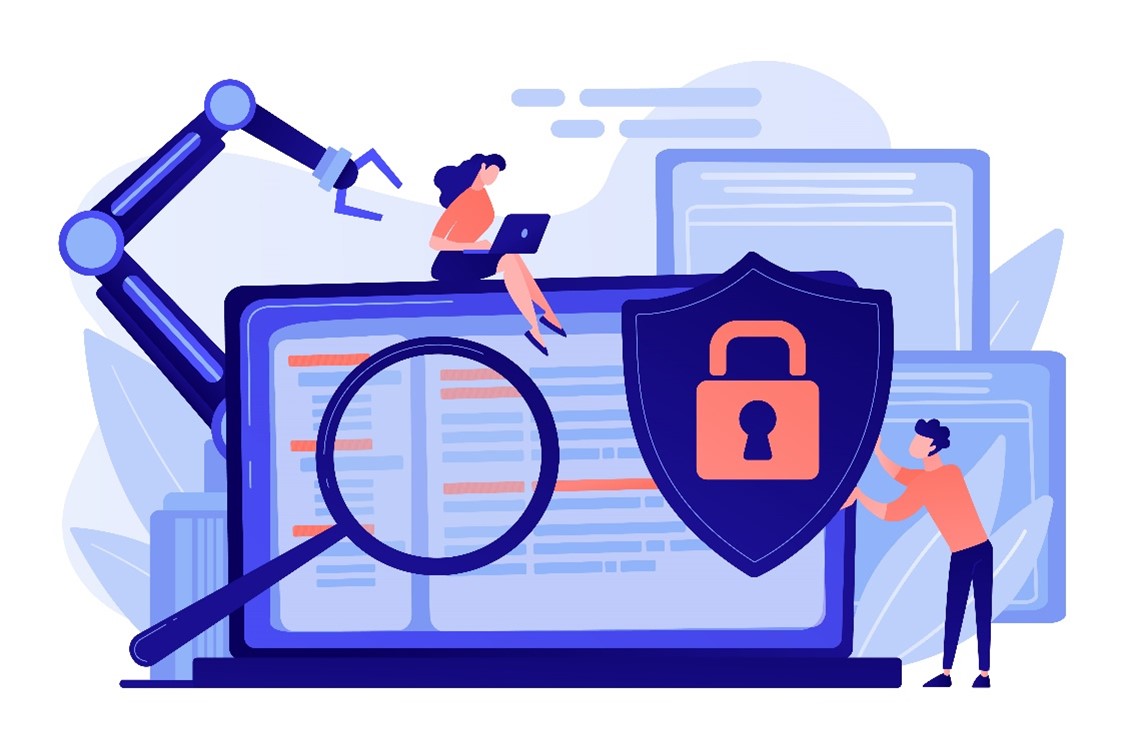We live in the world of globalization and ever-changing technological times. That means that almost no one can escape using digital tools and devices in their work life. This can put institutions or individuals at risk if they don’t have good cybersecurity protocols.
What is a security protocol and why do we need it?
Cybersecurity protocols are plans, rules, actions and measures to use to ensure sufficient protection to keep institutions (schools), groups of people (classes) and individuals (students, and teachers) safe from malicious attacks, data breaches and other security incidents. While cyber security protocol sounds like a big and complicated thing, the underline it is just a document that should be easily accessible to every person working in an institution that is working on any device. The document might note the use of personal devices while on the premises of the institution too.
 Source: https://freepik.com/
Source: https://freepik.com/
Think of the cybersecurity protocol like you would of the protocol in case of fire: there is the potential of danger and you want to do anything possible to avoid it or the fire is already happening and you want to minimalize the damage. You don’t have to be a security expert to start implementing security practices, if fact having cyber security protocol is designed so everyone – no matter their internet and computer skills level - should be able to understand day-to-day practices to protect themselves and their data.
While your institution will have its safety practices in place, there are simple steps you can take to protect the devices you are working on, the institution’s internet infrastructure and your accounts.
- Never leave devices unattended.
The physical security of your devices is just as important as their technical security. Set passwords or PIN locks on all your devices and remember to lock them if you need to step away. It takes about a minute for a passerby to send an email from your account to anyone (your boss included); 30 seconds for installing a keystroke logger to capture everything you type on your device including login data or sensitive information; 15 seconds to delete files from your device.
- Familiarize yourself with security protocol
To protect yourself and your devices you should read the security protocol and its updates. If you don’t understand points ask your IT for an explanation, they are also going to be your first point of contact if anything happens with your devices
- Log off public computers.
If you are using public computers – for example, shared computers at school – always make sure you log off any accounts you are using before finishing work. Many websites remember log-in users even after turning the device off so the next person that will be using the device after you may have access to your account.
- Back up important information and verify that you can restore it
Due to many reasons whenever system failure, user mistake or virus infection you may find yourself in a situation where important information stored on the device you use is not accessible. Be sure to regularly back up any data which is important to you personally or your role in the institution.
An expert in cybersecurity and network infrastructure, Nick Espinosa created 5 laws of cybersecurity that help understand the basic concept of cybersecurity. He explains his points in more detail in this video.
- If there is a vulnerability, it will be exploited – no exceptions.
- Everything is vulnerable in some way
- Humans trust even if they shouldn’t
- With innovation comes an opportunity for exploitation
- When in doubt, see rule number 1
Cybersecurity is a topic avoided by many, mostly by not understanding the concept or being afraid of the complexity of the topic. Knowing the security protocol of the working place not only protects user devices but also teaches healthy digital habits that can be implemented in everyday life on personal devices.